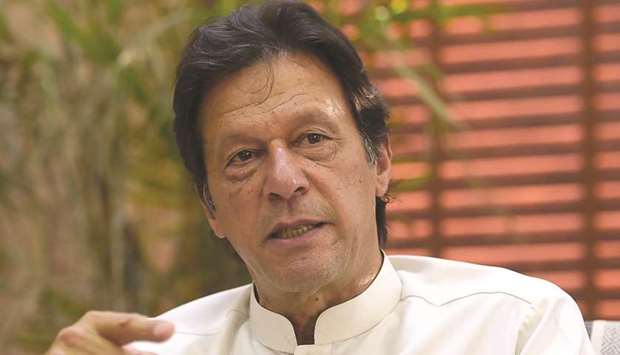One of Prime Minister Imran Khan’s key goals for ‘tabdeeli’ (change) was good governance through civil service reforms. He inducted two former bureaucrats as his advisers Shehzad Arbab and Ishrat Husain on Establishment Division and Institutional Reforms and Austerity, respectively
to deliver on the goal.
Shehzad himself is a retired officer of the District Management Group (DMG) now renamed as Pakistan Administrative Service (PAS), while Husain, an economist, is working on the task with a team of mostly senior bureaucrats.
A common perception is that most governance and administrative reform efforts have faced resistance from civil servants themselves and primarily from amongst the DMG or PAS officers.
“No one should be a judge in their own case,” said Nadeem-ul-Haque, the former deputy chairman planning commission, who spearheaded the last reform effort. He still repents that the transport monetisation reform was hijacked and misused by DMG officers in the absence of an effective media and civil
society to act as watchdogs.
Former prime minister Zulfikar Ali Bhutto, while underpinning civil service reforms in the early 1970s, lucidly expressed frustration over the bureaucracy’s love for status quo when he said: “No institution in the country has so lowered the quality of our national life as what is called the ‘naukarshahi’ (bureaucracy).
“It has created a class of Brahmins or Mandarins unrivalled in its snobbery and arrogance, insulated from the life of the people and incapable of identifying itself with them.”
Husain criticises the civil service reforms introduced by Bhutto in the early 1970s, and by Musharraf in the early 2000s, in his book Governing the Ungovernable.
Spelling out the reasons for his criticism of Bhutto’s and Musharraf’s reforms, Husain writes on page 217 that “these reforms curtailed the autonomy and supremacy of the civil service. Policies were now being outlined by elected representatives, a significant of demotion for civil service.”
This apparently runs counter to Prime Minister Khan’s recent speeches that policymaking is appropriately the domain of elected representatives and that bureaucracy is required only to implement that policy.
Husain, while tracing the causes of decay and decline in civil service, puts the blame on loss of constitutional protection, eroded glory and low compensation of civil servants.
He tends to downplay the dangerous mismatch between the bureaucracy’s authority and accountability as the cause of civil service’s apathy to performance and its indifference to the common man’s life.
Husain suggests promotions in the civil service on the basis of almost the same criteria which have already found their way into the Establishment Division’s successive office
memorandums.
He conceives a National Executive Service that appears to be almost a replica of the present Secretariat Service and recommends phasing out several service groups from the present CSS while retaining the Pakistan Administrative Service and a
couple of others.
These recommendations point at undermining the bureaucracy’s accountability and further consolidating the hold of one service group over all others.
On the contrary, different people, committees and commissions, local as well as foreign, that have studied the problems of Pakistan’s civil service and recommended remedial measures from the early 1950s to early 1970s, took a different direction.
Bernard Gladieux, a US consultant hired by Pakistan in the 1950s, remarked that ‘regardless of their personal and professional qualifications, no democracy can afford to entrust its administrative destiny to any single cadre or group, class or service.
To do so is to run the risk of creating and maintaining a civil service oligarchy. He believed the technical and professional officers also had administrative expertise and should be given top positions.
Yet, the Pakistan Engineering Council claims that more than 40 per cent of positions dedicated for engineering experts were currently occupied by non-engineers, mostly from administrative cadres because of their deep rooted influence, nullifying the principle of right man for the right job. One of the results is the Rs1.5 trillion energy sector circular debt, PEC claims.
The Pay and Service Commission presided over by Justice Cornelius had concluded that the normal method of claiming the right to occupy a post in public service should be proving competence to do so and not on the basis of reservation or vested rights in favour of a certain section coming down from the
period of colonial rule.
The fate of Imran Khan’s reforms may be similar to those enacted in the past unless the elected representatives, assisted by outside experts, take charge and reform the civil service into a unified whole in which talent and competence, liberated from the confines of ‘groups’ and ‘services’, rise to the top, leaving the dead wood behind.

Imran Khan
